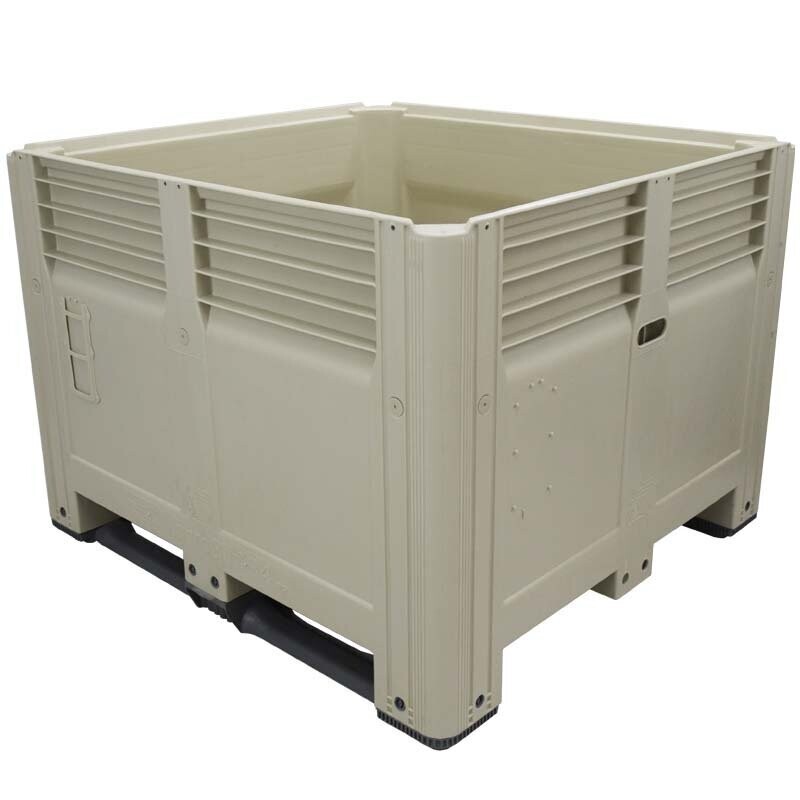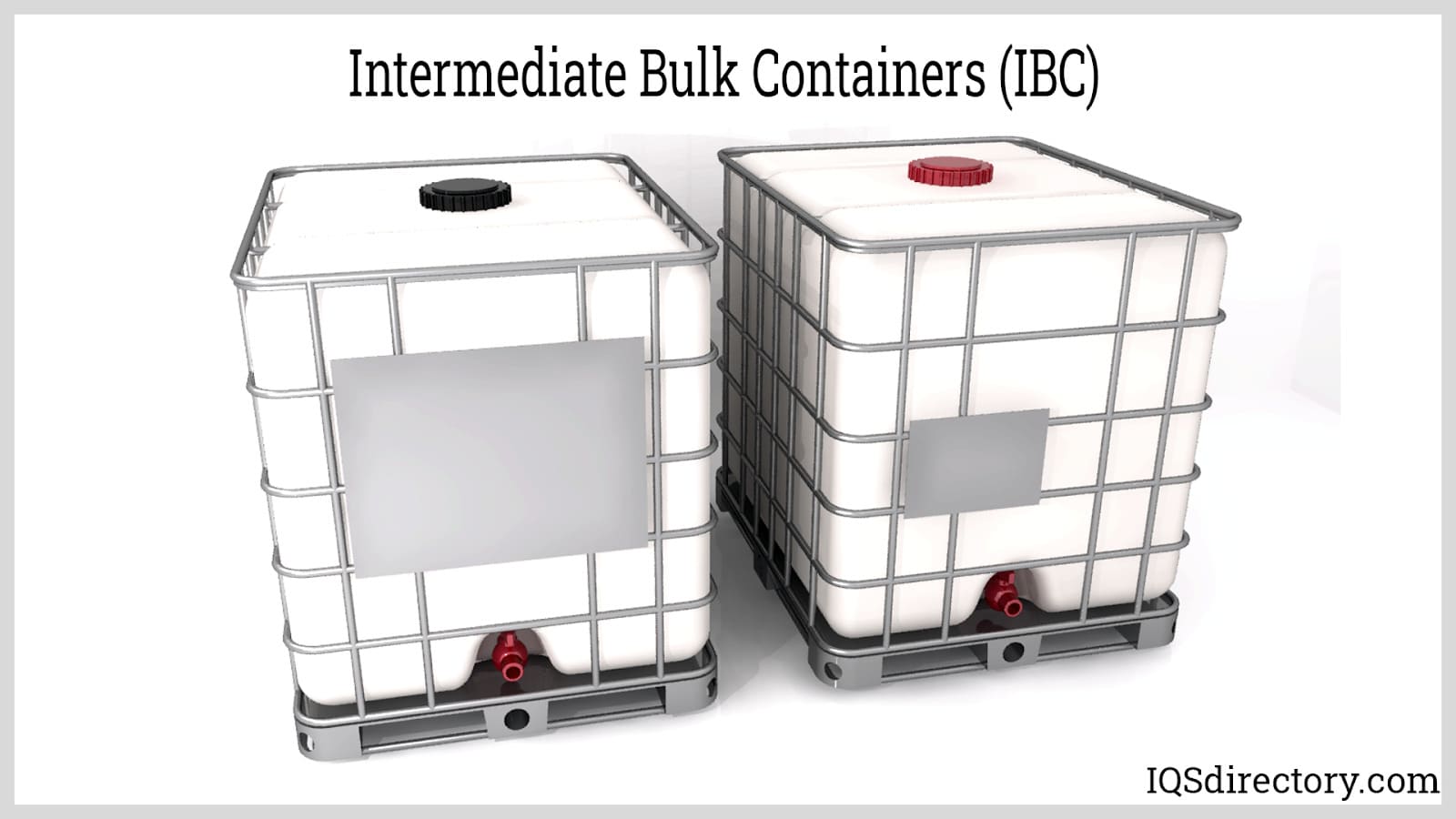The comprehensive overview of Bulk Plastic Containers for versatile storage
Everything About Mass Plastic Containers: Benefits, Applications, and Market Insights
Bulk plastic containers play a substantial role in numerous sectors, offering benefits that boost performance and sustainability. Their light-weight nature decreases delivery costs, while their toughness guarantees risk-free storage space and transportation of varied items. As business increasingly look for environmentally friendly solutions, the need for these containers is expanding. This elevates vital inquiries regarding the materials utilized and the patterns influencing their design. What effects do these aspects have for the future of mass plastic containers?
Benefits of Bulk Plastic Containers
Mass plastic containers use a multitude of advantages in different markets. Their lightweight design notably minimizes transportation expenses, permitting efficient logistics and easier handling. Furthermore, these containers offer durability and resistance to weather components, chemicals, and physical impact, making sure the safe storage and transportation of items. The versatility of bulk plastic containers permits them to be formed right into numerous sizes and shapes, providing to details market requirements.

Typical Applications Throughout Industries
While numerous sectors utilize bulk plastic containers, their applications are particularly famous in sectors such as food and drink, drugs, farming, and production. In the food and beverage market, these containers are essential for saving and moving products like grains, liquids, and ready dishes, making certain quality and safety and security. The pharmaceutical field relies upon mass plastic containers for safe and secure storage of vaccinations and medicines, keeping compliance with rigorous regulations.
In agriculture, these containers promote efficient handling and transport of produce, plant foods, and chemicals, while also sustaining sustainable methods through recyclability. Production industries use bulk plastic containers for parts storage and setting up line procedures, advertising organization and workflow performance. In addition, these containers offer a substantial duty in logistics and supply chain management, streamlining the activity of products throughout various industries. In general, the convenience of bulk plastic containers makes them important across several industries.
Product and Layout Considerations
When choosing bulk plastic containers, material and style factors to consider play a necessary duty in making certain capability and conformity with market criteria. The choice of product considerably affects the container's toughness, weight capability, and resistance to ecological aspects. Common products include high-density polyethylene (HDPE) and polypropylene, known for their strength and chemical resistance.
Style facets, such as size, form, and closure mechanisms, additionally affect functionality. Containers with ergonomic manages and stackable designs improve storage performance and ease of transportation. In addition, attributes like venting or drainage openings might be necessary for certain applications, permitting air blood circulation or liquid elimination.
Conformity with safety and security policies, such as FDA approvals for food-grade applications, is crucial. plastic bulk containers. In general, mindful consideration of materials and style can enhance performance and longevity, guaranteeing that mass plastic containers fulfill the varied needs of different markets successfully
Fads in Bulk Plastic Container Use
As industries develop, the use of bulk plastic containers is increasingly affected by sustainability and effectiveness. Firms find out are choosing for green products, such as recycled plastics, to reduce environmental impact while keeping resilience. This shift is driven by customer demand for lasting practices and governing pressures focused on reducing plastic waste.
Furthermore, the fad towards automation in logistics and supply chain monitoring is improving container designs. Mass containers are now being engineered for compatibility with automated systems, enhancing operational effectiveness. Light-weight styles are additionally gaining traction, as they reduce delivery costs and power consumption throughout transportation.
In enhancement, personalization is ending up being a prime focus, allowing businesses to customize containers to specific demands, thus enhancing area and functionality. published here These patterns show a broader commitment to sustainability, technology, and performance within numerous markets, guaranteeing that bulk plastic containers proceed to play an important function in modern-day supply chains.
Ideal Practices for Storage Space and Transport
Efficient storage and transport of bulk plastic containers require adherence to finest practices that enhance security and performance. Initially, containers ought to be stacked securely, assuring that weight is uniformly dispersed to avoid tipping or damage. Using pallets can facilitate simpler movement and protect the containers from ground wetness. Additionally, proper labeling is essential for quick recognition and tracking throughout transit.
Temperature control is another essential aspect; extremes can endanger the stability of the products. It is advisable to store containers in a climate-controlled setting when essential. For transportation, selecting ideal automobiles designed for mass loads warranties stability and reduces threat throughout transit.
Normal inspections of containers before storage space and transportation important source assistance identify any kind of wear or damages, enabling for prompt maintenance or replacement. By following these best methods, companies can enhance the lifecycle of mass plastic containers while maintaining functional efficiency.
Regularly Asked Inquiries

Are Mass Plastic Containers Recyclable After Usage?
Yes, bulk plastic containers are frequently recyclable after usage. Recyclability depends on the material kind and regional recycling programs. Proper cleaning and sorting are important to assure they are accepted by reusing centers.

What Is the Lifespan of Bulk Plastic Containers?
The lifespan of mass plastic containers usually varies from 5 to ten years, depending upon usage problems, worldly quality, and ecological elements. Bulk Plastic Containers. Appropriate maintenance can expand their durability, making them a resilient storage remedy
Can Bulk Plastic Containers Be Customized?
Yes, bulk plastic containers can be customized. Suppliers usually use alternatives for dimension, shade, material, and branding, enabling companies to tailor containers to their specific requirements and enhance their product discussion and performance.
Just How Do Bulk Plastic Containers Contrast in Expense to Alternatives?
Mass plastic containers usually use a lower price compared to choices like steel or glass, due to their light-weight nature and resilience. This makes them a cost-efficient selection for companies needing reliable storage space services.
Are There Safety Rules for Utilizing Mass Plastic Containers?

Mass plastic containers play a considerable duty in different industries, offering advantages that enhance performance and sustainability. While different industries use bulk plastic containers, their applications are particularly popular in fields such as food and beverage, drugs, farming, and manufacturing. Manufacturing sectors use bulk plastic containers for components storage and setting up line procedures, promoting organization and operations efficiency. When selecting bulk plastic containers, material and style considerations play an important role in making sure functionality and conformity with market standards. As industries advance, the usage of mass plastic containers is progressively influenced by sustainability and effectiveness.